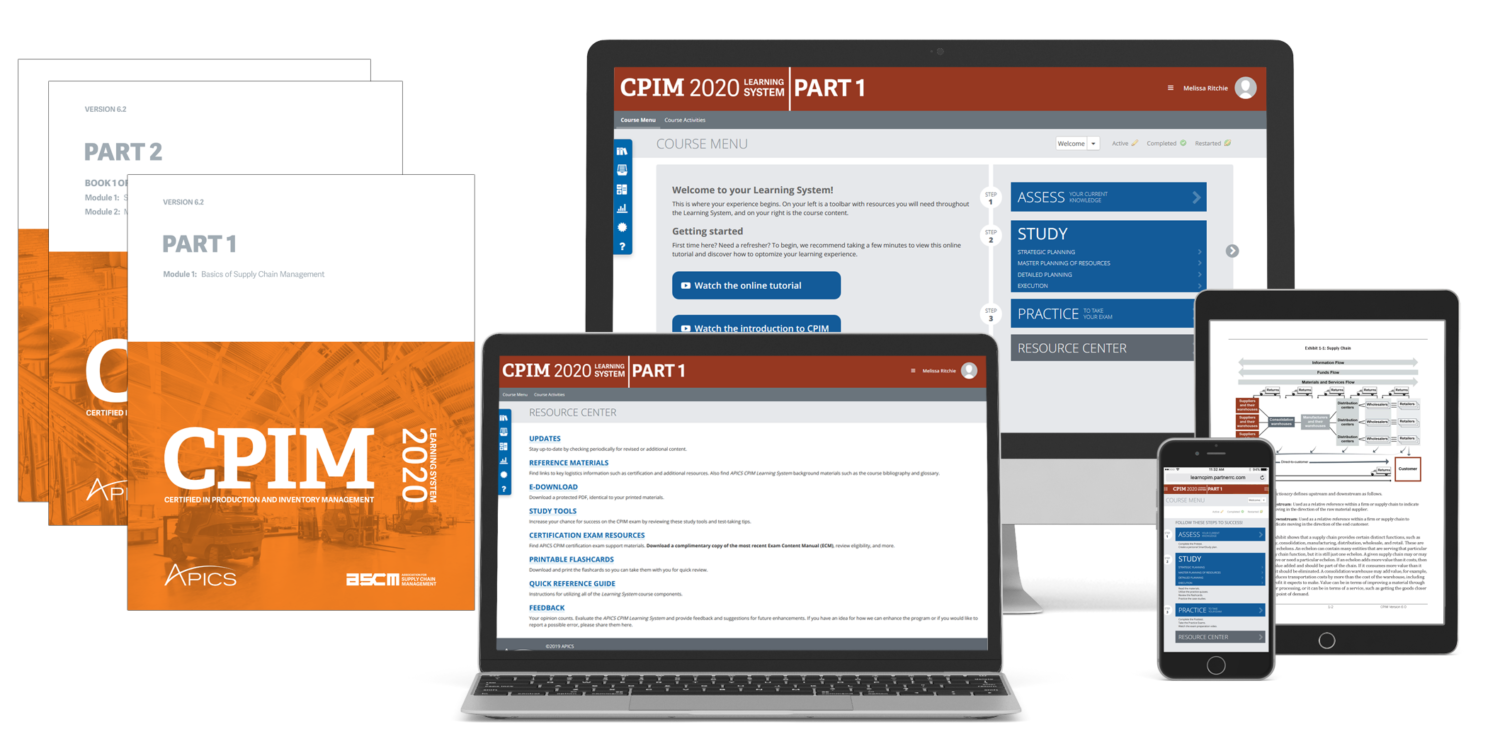CPIM Success Story
Why Pursue a CPIM?
Earning the CPIM credential makes you a recognized expert in internal operations for your organization. Your commitment and effort demonstrate your high level of knowledge and skills to your employer and colleagues. Certification makes you a more valuable asset to your organization, boosting your career and keeping your organization more competitive in today’s economy. Wherever your career takes you, your CPIM certification defines you as an internal operational expert and leader.
- Certification.
- Exams.
- 10% Salary Increase - According to the 2016 APICS Operations Management Employment Outlook.
- 65% Improved Hiring Potential.
- Unlimited Opportunities.
How is the CPIM Structured?
The CPIM learning system includes the two learning systems and two exams which consist of five modules. Each module reflects critical areas in production and inventory management. After completing both of the CPIM exams you earn your CPIM.
What is covered in CPIM Part 1?
This exam addresses basic definitions and concepts for planning and controlling the flow of materials into, through, and out of, an organization. It identifies fundamental relationships among the activities that occur in the supply chain from suppliers to customers. It also provides an overview of manufacturing systems, forecasting, master planning, material requirements planning, capacity management, production activity control, purchasing, inventory management, distribution, quality management and just-in-time manufacturing. The four main topics covered in this exam are:
- Section A - Introduction to Supply Chain Management.
- Section B - Demand Management.
- Section C - Master Planning.
- Section D - Material Requirements Planning.
- Section E - Capacity Management.
- Section F - Purchasing.
- Section G - Inventory Management.
- Section H - Execution and Control.
- Section I - Physical Distribution.
- Section J - Continuous Improvement.
What is covered in CPIM Part 2?
The second half of the APICS CPIM is an in depth look at the internal operations of an organization. You will get a comprehensive look at:
- Strategic Management of Resources (SMR) - This portion explores the relationship of existing and emerging processes and technologies as related to manufacturing strategy and supply chain functions. Key topics include: competitive market issues, choices affecting structure and infrastructure, supply chain, information technology, organizational design, configuring and integrating internal processes, and change management.
- Master Planning of Resources (MRP) - This portion focuses on the relationship of strategic and business planning with operations planning. It covers the four primary areas of demand management; (forecasting, customer order servicing, distribution planning and customer relationship management). Forecasting tools and techniques and concepts are presented along with best practices in customer order servicing. It also breaks down the formal processes and controls related to sales and operations planning (S&OP) and master production scheduling (MPS). And, it shows how to develop realistic, achievable production plans and master schedules consistent with business objectives and resource constraints in both MTS and MTO environments.
- Detailed Scheduling and Planning (DSP) - This portion focuses on concepts and techniques for material and capacity planning at the detailed level of planning and scheduling. It covers various inventory planning factors such as lot-sizing, order review techniques, safety stock, and inventory accuracy as they relate to order planning and scheduling. It also defines critical inputs and outputs of manufacturing planning and control systems, and it provides a detailed explanation of Material Requirements Planning (MRP) and Capacity Requirements Planning (CRP) processes. Also included in this course is a discussion of the strategic importance of procurement planning and supplier relationship development.
- Execution and Control of Operations (ECO) - This portion focuses on the principles and practices of scheduling, controlling, and measuring operations in all types of manufacturing environments (job shop, batch, flow, and process production). It explains techniques for scheduling and controlling intermittent production and process operations. It also addresses the execution of quality initiatives, elimination of waste, continuous improvement.




